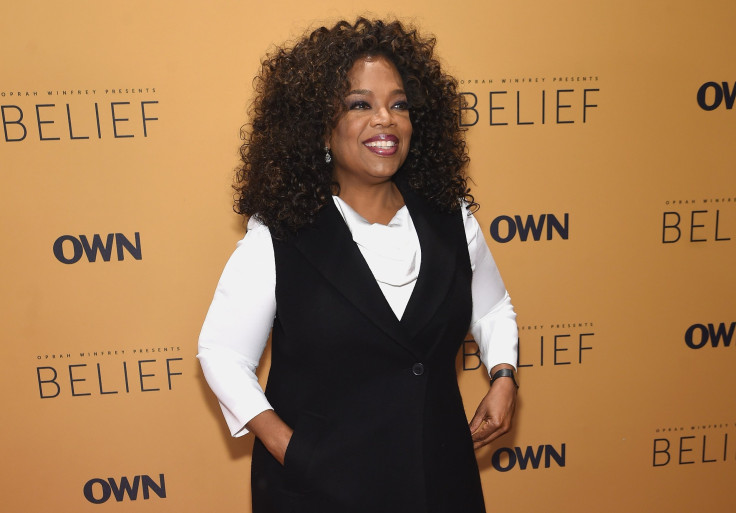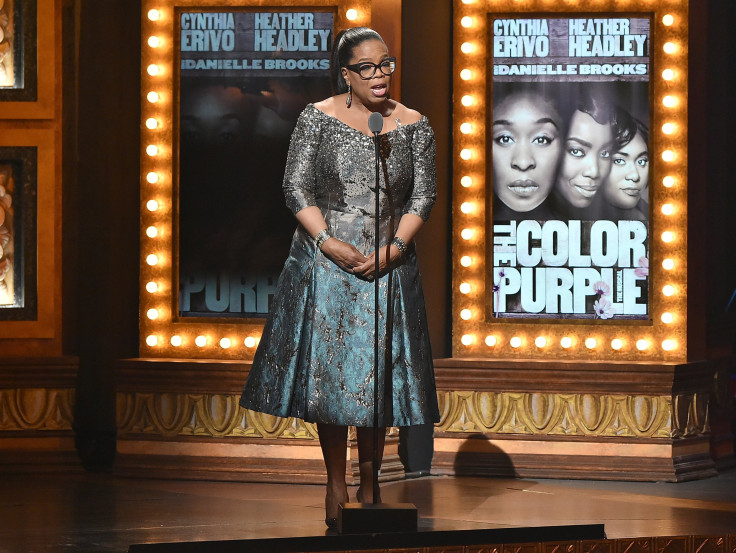Diversity In Hollywood: What THR’s 100 Most Powerful List Says About The Industry

The #OscarsSoWhite controversy threatened to swallow February's Academy Awards whole, but the reality is the problem is much bigger. It is not just the Oscars — Hollywood is so white.
The Hollywood Reporter released a new list of the 100 most powerful people in the industry Wednesday and, not surprisingly, the list is chock-full of white men. That is not the Hollywood Reporter's fault — the publication has appeared to put effort into being objective and has already pointed out the lack of diversity in the list. The list merely reflects a reality in the industry that people of color and women are still enormously underrepresented among those who give projects the green light.
Among the 124 names on the list — some names are grouped into a single entry when judged to be part of a team, such as Shari and Sumner Redstone, who control Viacom and CBS — only 19 are women and only 10 are people of color. Within those numbers, only six of the names, less than 5 percent, are African-Americans, including actor Denzel Washington, producer Oprah Winfrey, producer Shonda Rhimes and comedian Kevin Hart. Two of the names are Asians, execs Jack Gao and Kevin Tsujihara, and two are Latinos, "Hamilton" creator Lin-Manuel Miranda and Oscar-winning director Alejandro G. Iñárritu. Mexican filmmaker Iñárritu, at 94 on the list, is the highest-ranking Latino entry. No people of color placed in the top 10.

Meanwhile, of the 19 women on the list, seven shared their entry on the list with a man, such as Universal Pictures Chairwoman Donna Langley, who shares her entry with Universal Filmed Entertainment Chairman Jeff Shell and NBCUniversal Vice Chairman Ron Meyer. Only one woman, Shari Redstone, made the top 10, and that was in partnership with her aged father.
"We know that a lot of this list is white guys. We won't need social media, thanks anyway, to drop an anvil on our heads to realize this," Janice Min, Hollywood Reporter president and chief creative officer, wrote Wednesday in an article explaining the list's criteria. "I'd like to think we cover the issues of gender and diversity that plague Hollywood with a critical eye and will continue to. And I hope and expect that one day in the near future this list has a wholly improved and reflective composition."
Min said fame, access to money and the ability to both give and get the green light for a project were taken into account in picking the list.
"The simplest test of determining the differential between people became this: Whose phone call would you return first? Not because you like them but because your financial future and career just might, might, be altered by the time you hung up?" Min wrote.
That criterion highlights the struggle for many women and minorities in Hollywood. To have success in the industry, newcomers need a hand from the established power players, and those people are overwhelmingly white men. That can lead to a cycle of white men receiving preferential treatment in everything from casting to executive roles.
Addressing the February #OscarsSoWhite controversy, stemming from the second straight year in which all 20 acting nominees at the Academy Awards were white, Oscar-winner Morgan Freeman called for more diversity behind the camera to fix the whitewashing onscreen.
"I personally would try to encourage, and do try to encourage, writers," Freeman told USA Today. "We need writers. If you’ve got stories to tell, that helps. That’s your biggest input. It’s unrealistic to me to say to a white studio, owned by white people, run by white people, ‘Well, why don’t you tell my story?’ [They're going to say] 'F--- you. Tell your own story. You tell it.'”
On "Good Morning America" in January, "Chi-Raq" director Spike Lee said the Oscar controversy was a "misdirection play," explaining that the problem lies further up the chain, in the studios where the big movies are greenlit.
"We're not in the room," Lee told the show.
The Hollywood Reporter's list is more evidence that Lee is right.
© Copyright IBTimes 2024. All rights reserved.












